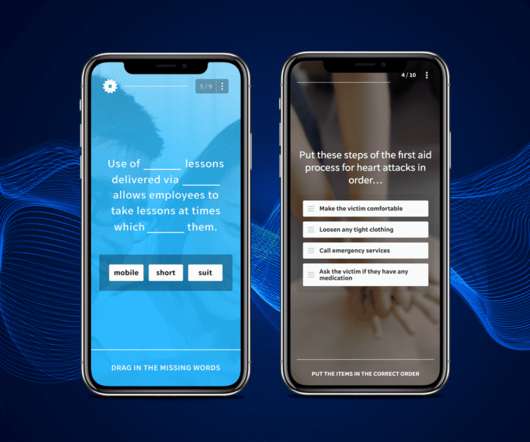Taxonomy of Learning Theories
E-Learning Provocateur
JANUARY 12, 2010
Academia is teeming with learning theories. It can be quite a challenge for the modern learning professional to identify an appropriate learning theory, draw practical ideas from it, and apply it to their daily work. Which theory do you choose? How does it relate to other theories? Where do you start?















Let's personalize your content